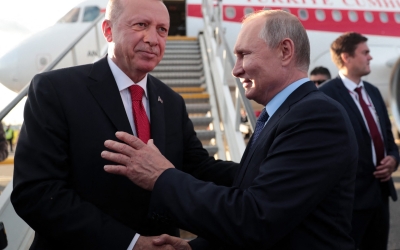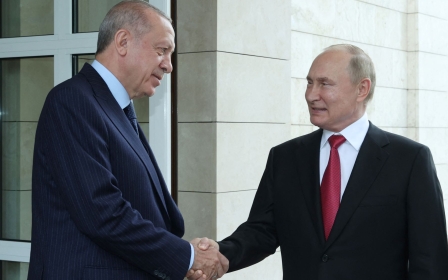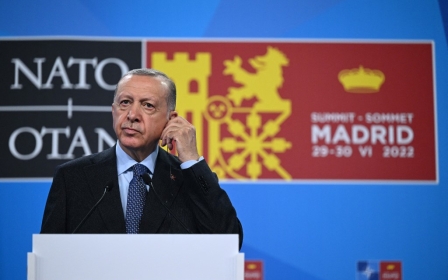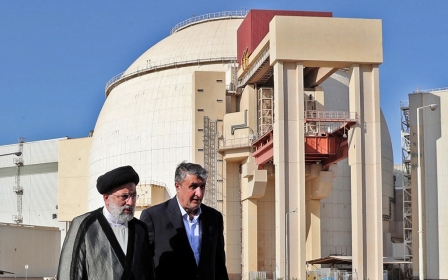Iran's supreme leader presses Erdogan on proposed Syrian offensive
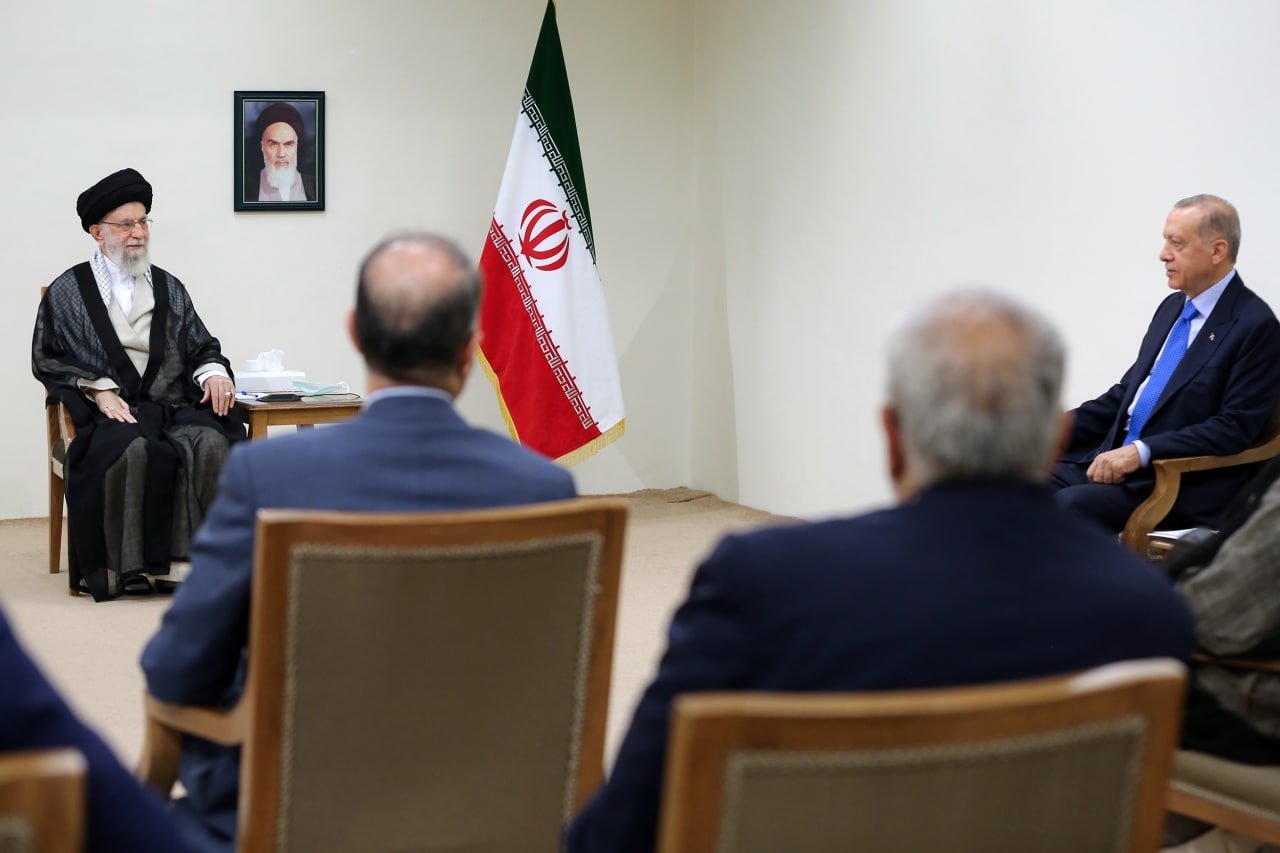
Iran’s Supreme Leader Ali Khamenei pushed against a possible Turkish military operation in northern Syria in a meeting with Recep Tayyip Erdogan on Tuesday, saying it would be detrimental for Turkey and the region, according to Iranian state media reports.
The Turkish military has been sending reinforcements to northern Syria, especially areas near the town of Tal Rifaat, which is held by the People’s Protection Units (YPG), a US-backed Kurdish militia that Turkey considers the PKK's Syrian branch.
“This is definitely to the detriment of Syria, Turkey and the region, and the political action expected from the Syrian government as a result wouldn’t be realised,” Khamanei said.
'I believe our bilateral trade will meet the target we set and it is possible to accelerate this process by taking steps in the defence industry'
- Recep Tayyip Erdogan
"Terrorism must definitely be confronted, but a military attack on Syria will only benefit the terrorists. Of course, terrorists are not just a certain group," he said, adding that Iran would certainly cooperate with Turkey in fighting terrorism.
Erdogan is visiting Iran under the shadow of increasing tensions between Ankara and Tehran over the latter’s intelligence activities on Turkish territory.
Stay informed with MEE's newsletters
Sign up to get the latest alerts, insights and analysis, starting with Turkey Unpacked
The Turkish president and his Iranian counterpart Ebrahim Raisi met as part of a round of high-level talks between their countries on Tuesday, and they later will meet Russia's Vladimir Putin as part of the so-called Astana process to discuss Syria.
After the meeting, Erdogan asked for solidarity from Iranian officials to go after the YPG and PKK Kurdish groups. The PKK, which has waged a decades-long insurgency against Turkey, is considered a terrorist group by Ankara, Washington and the EU. However, the YPG has partnered with a US-led military coalition to defeat the Islamic State group.
Defence industry cooperation?
Following the meeting, Turkey and Iran signed a number of technical deals. But subsequent remarks made by Erdogan during his joint news conference with Raisi made waves on social media.
Erdogan said his government was planning to increase bilateral trade up to $30bn in coming years, adding that defence industry cooperation could play a role to reach that target.
“I believe our bilateral trade will meet the target we set and it is possible to accelerate this process by taking steps in the defence industry,” Erdogan said in a live broadcast.
“As you very well know, Turkey’s defence industry made strides in the last few years and I very much value our cooperation in this topic.”
However, multiple Turkish sources denied any current defence industry cooperation between Iran and Turkey, a member of Nato. “There is none,” one Turkish defence industry source said.
People close to the Turkish president speculated that Erdogan might have offered defence industry cooperation as a possible way to increase the trade rather than working on an actual plan to collaborate in that area.
Tensions between the two countries have been steadily rising since the killing of an Iranian dissident in Turkey in 2019, allegedly on the order of two Iranian diplomats.
The kidnapping and killing of an Iranian dissident in Istanbul in October 2020, an Iranian-backed military offensive in Syria, and rows over water resources have soured relations further ahead of Erdogan's visit this week.
Middle East Eye delivers independent and unrivalled coverage and analysis of the Middle East, North Africa and beyond. To learn more about republishing this content and the associated fees, please fill out this form. More about MEE can be found here.


